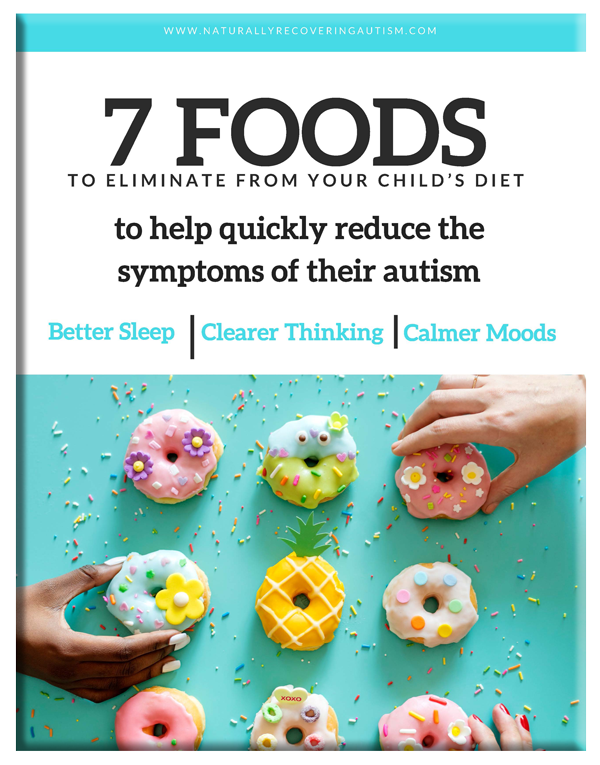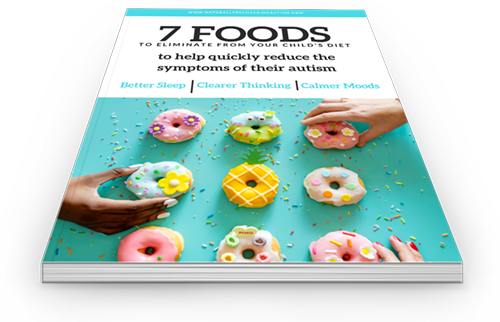Why might my child be behaving this way. Toxins, inflammation on the brain, infections, and gut disruption reduce the production of neurotransmitters.
WHAT IS A NEUROTRANSMITTER?
Neurotransmitters can be thought of as the brain’s messengers. They are chemicals made in the digestive tract, or in the brain. They transmit messages vital to our brain’s ability to function properly, our body’s muscle movements, and more. They regulate our moods, appetite, and sleep. They even control our body’s response to pain. If the volume of these chemicals is too low or too high, the message is not sent properly and we experience symptoms.
Below are a some more commonly known neurotransmitters:
Serotonin
Serotonin is the neurotransmitter most involved in the cause of multiple medical and psychiatric problems. It is greatly affected by inflammation and up to 95% of it is made in the gut, so the gut must be working properly. It mainly affects mood, sleep and appetite.
Low levels of serotonin may contribute to:
- Moodiness, including irritability and depression
- Trouble sleeping
- Appetite control (lack of satiety)
- Night terrors
- Poor digestion
- Migraine headaches
Dopamine
Dopamine is essential in attention, focus, and impulse control. Low dopamine is often a contributor to trouble with handwriting, and ability to organize thoughts or plan future events , extremely low motivation and drive, extreme hyperactivity, motor control, and reward.
Signals that dopamine is low:
- Trouble focusing
- No sense of pleasure or reward
- Inattentive
- Low motivation
- Difficulty with follow through
Too much dopamine can be a problem, just as too little can be a problem. Too much dopamine with phenylalanine can cause behavioral disorders such as schizophrenia and seizures.
Additionally, if your child is in a PANS flare then do not give L-tyrosine to build dopamine because PANS can cause excessively high amounts of dopamine to be made in the brain.
Signals that dopamine is too high:
- Hyperfocus
- Stuck in negative behavior patterns (the grudge holder) OCD
Epinephrine/Adrenaline
Epinephrine is also referred to as adrenaline. It is both a neurotransmitter and a hormone. It has more of an affect on your heart in the fight or flight response.
Epinephrine is also known as adrenaline. Adrenaline is the hormone that causes the fight or flight response. It tells the body that it is in danger and reacts by increasing the heart rate, activating the lungs, and sending blood away from our brain and digestive tract to our extremities so that we can fight or flee. This is commonly used to stimulate a fight reaction from the body when one is having a life- threatening allergic reaction, such as from a bee sting.
Norepinephrine
Norepinephrine is also both a neurotransmitter and a hormone. It is a stress hormone involved adrenal function. Used in the fight or flight response it assists more with blood vessels in regulating blood pressure and blood glucose (blood sugar) levels. It also helps with attention and focus.
Norepinephrine acts as both a hormone and a neurotransmitter. It can reduce inflammation in the brain and increase its oxygen supply. Via its effect on the part of the brain called the amygdala, norepinephrine can trigger the fight or flight response. It also increases the heart rate when under stress and is involved in shifting attention. It is prone to disruption from mercury toxicity.
Norepinephrine is made from dopamine. When staying focused becomes difficult, there is usually a deficiency in dopamine. The amino acid L-tyrosine is the best way to naturally build this neurotransmitter.
Oxytocin
Oxytocin regulates neurotransmitters in the central nervous system. It is responsible for the ability to bond to another as in maternal bonding, trust, and empathy, also social recognition, and regulating anxiety.
When neurotransmitter levels are too high or too low, they are felt by imbalances of different parts of the brain and cause disturbances in our ability to function properly. The level of deficit corresponds to the level of the disorder. For example, if your serotonin is a little bit low, you may have mild depression. If it is extremely low, you might be suicidal.
Common reasons for the disruption of neurotransmitters
When the gut is toxic and inflamed it cannot properly produce and transmit neurotransmitters. Toxic chemicals such as pesticides, heavy metals, (especially mercury), candida overgrowth, Lyme disease, mold biotoxins, PANS or strep infection can all lead to disruption of neurotransmitters.
Scientists have found that gut bacteria produce neurotransmitters such as serotonin, and dopamine. Up tp 95% of serotonin is made in the gut. The gut must be healthy for adequate amounts to be produced and transfer properly to the brain.
Neurotransmitters that are in the brain are mostly made from amino acids. Amino acids are made from proteins, so protein foods will raise levels of neurotransmitters in the brain as long as we are assimilating our food properly.
For more on neurotransmitters and supplements that can help please go to “Anger and Autism” podcast episode #141.
Get Karen’s free muscle testing tutorial video here
This information is not meant to diagnose, treat or cure. It is meant for informational purposes only.
Quickly Reduce Your Child’s Symptoms
of Autism by Eliminating 7 Specific Foods that Most People Consume Daily!
The first crucial step of autism recovery is to begin restoring health to the gut and the immune system.
The health of the gut is directly linked to the health of the brain and therefore to the symptoms of autism. In fact, 80% of the immune system comes from the gut so if the gut is not healthy, then the brain can’t thrive, and the immune system is compromised. It’s a vicious cycle, but thankfully, it’s one that we can put an end to by first eliminating harmful foods.
This is for informational purposes only and is not meant to diagnose or treat. Every child’s level of recovery is different. No two people are the same. It is never implied that all children will have the same outcome. Results are all based on individual biology and the work that is done. This process takes time and various steps, effort and resources need to be weighed. Our programs are intended to help you become more knowledgeable and guide you to help bring your child a better quality of life, whatever that may be. We want to help by giving great content, direction and strategies that move you forward. Nothing on this page or any of our websites is a promise or guarantee of results or future outcomes. The results on this page and any of our websites are not typical or promised. In fact, there will be people who purchase this and other programs and never put the work into implementing the strategies taught and therefore will achieve little to no results. Our more detailed earnings disclaimer, privacy policy, and terms and conditions for this program and website can be accessed via the links below. We hold ourselves (and you) to a high standard of integrity. We are cheering you on every step of the way.











